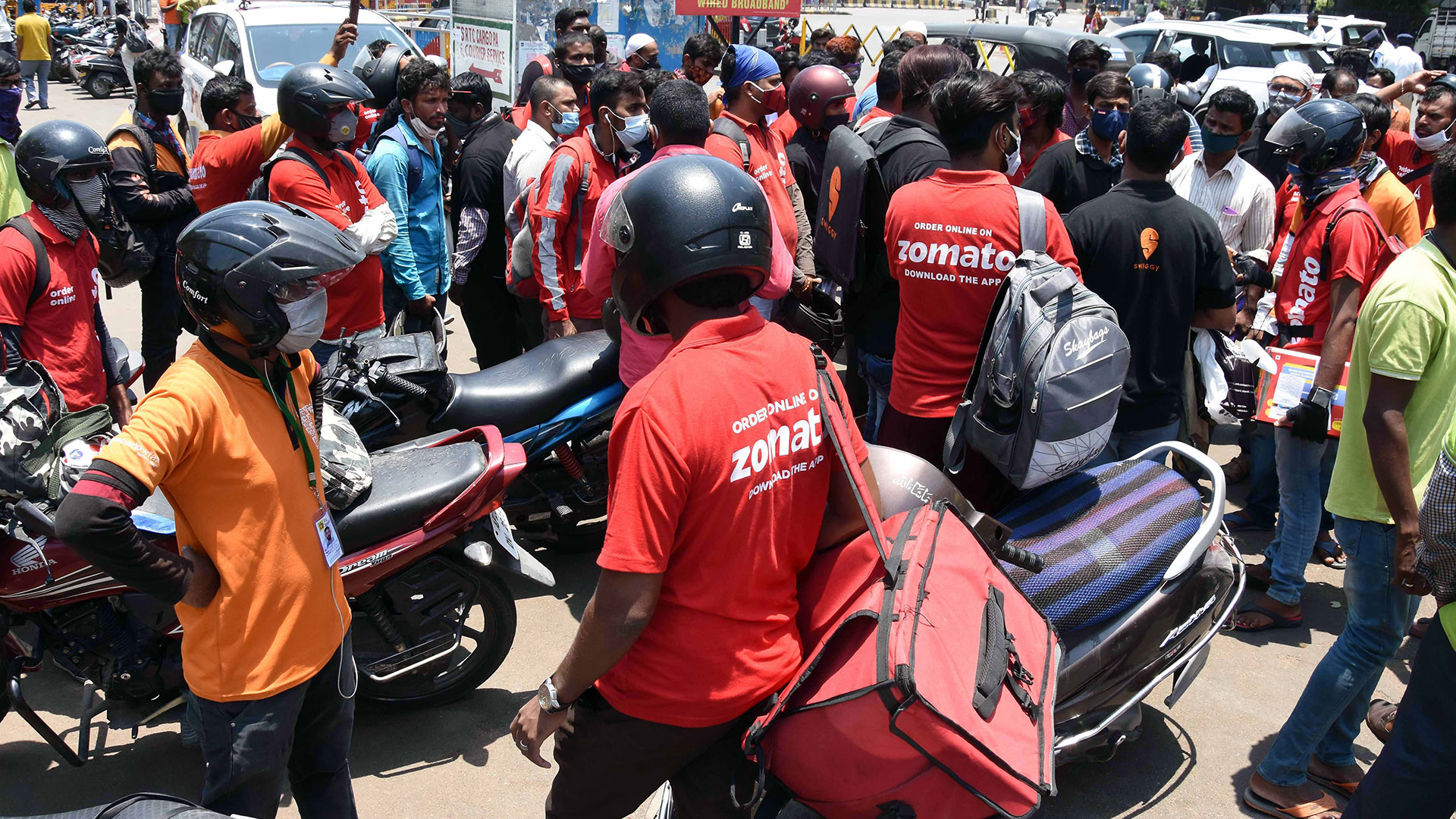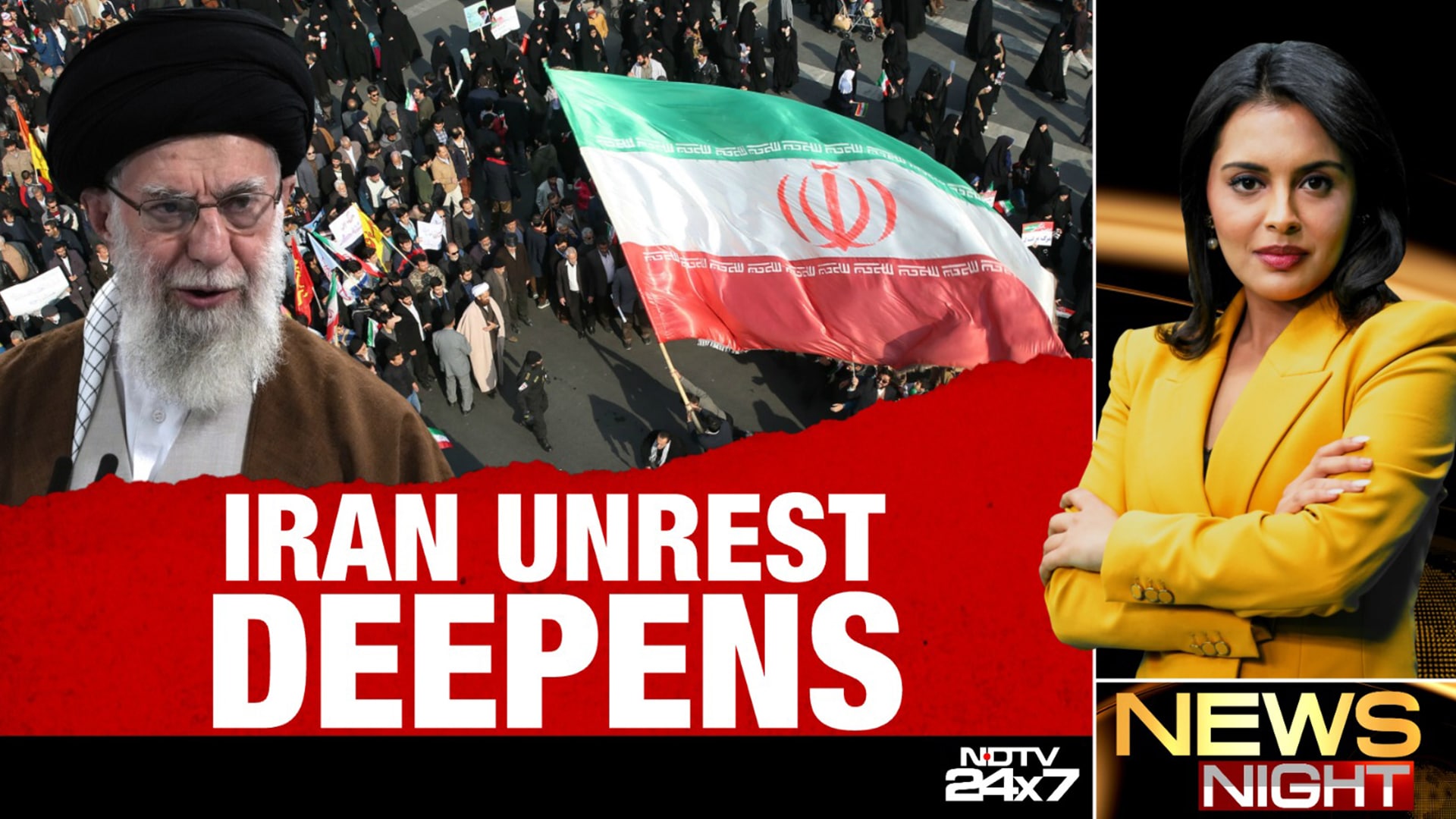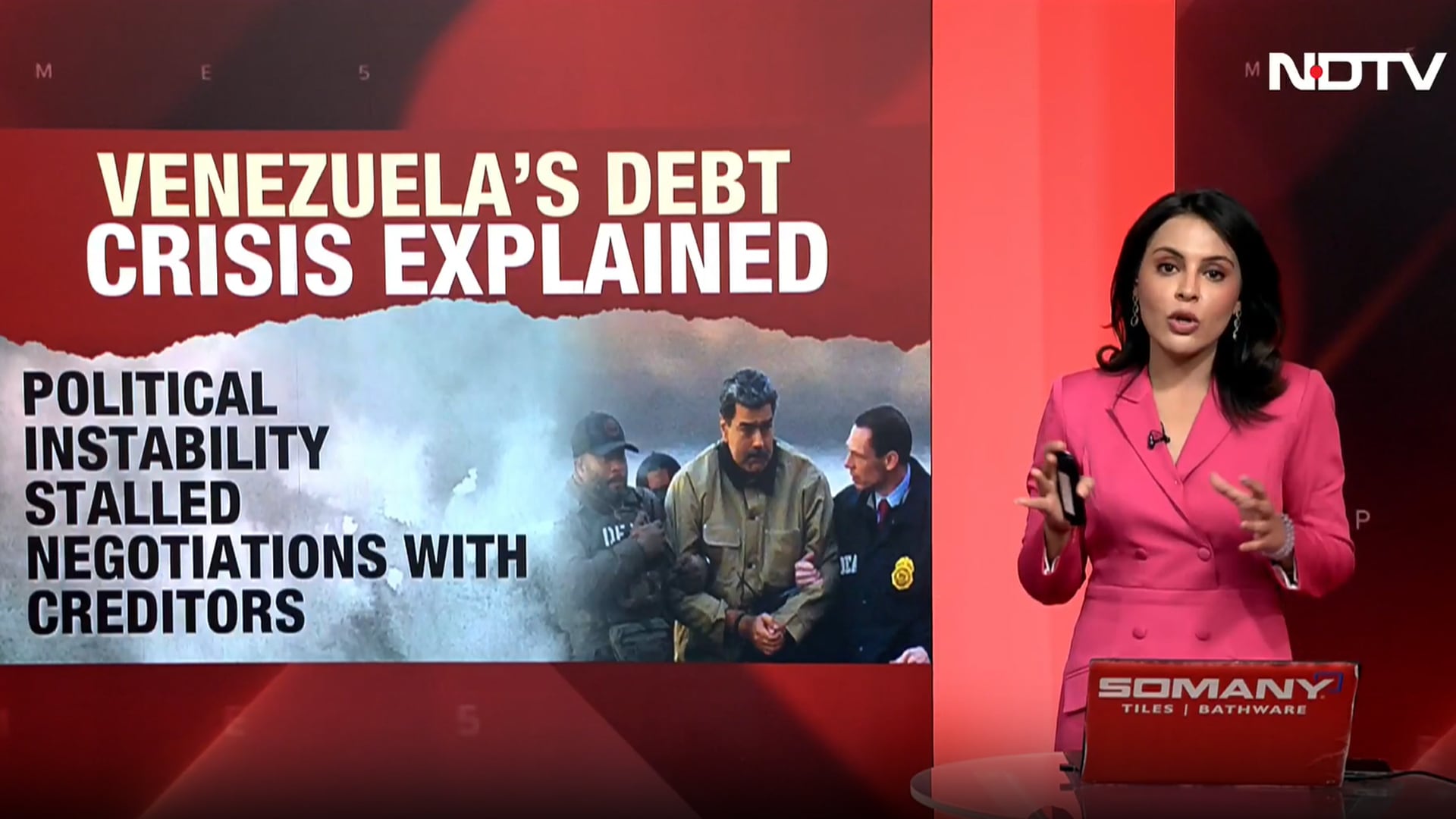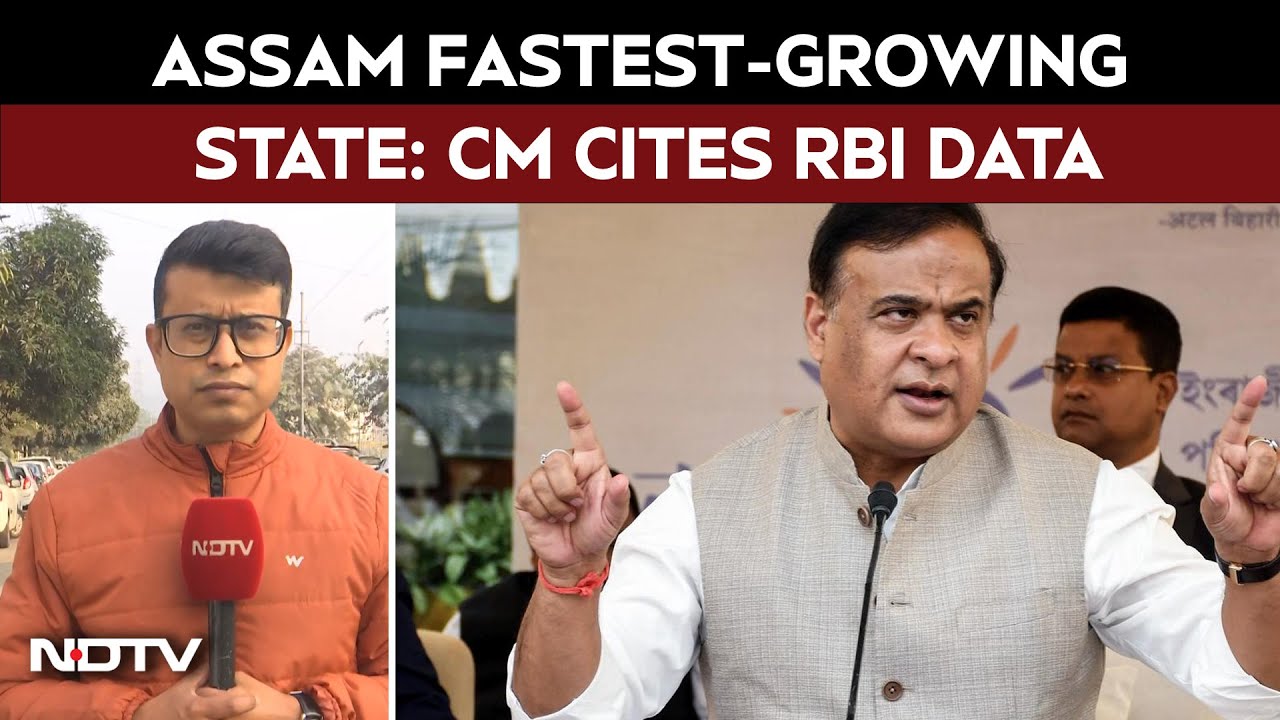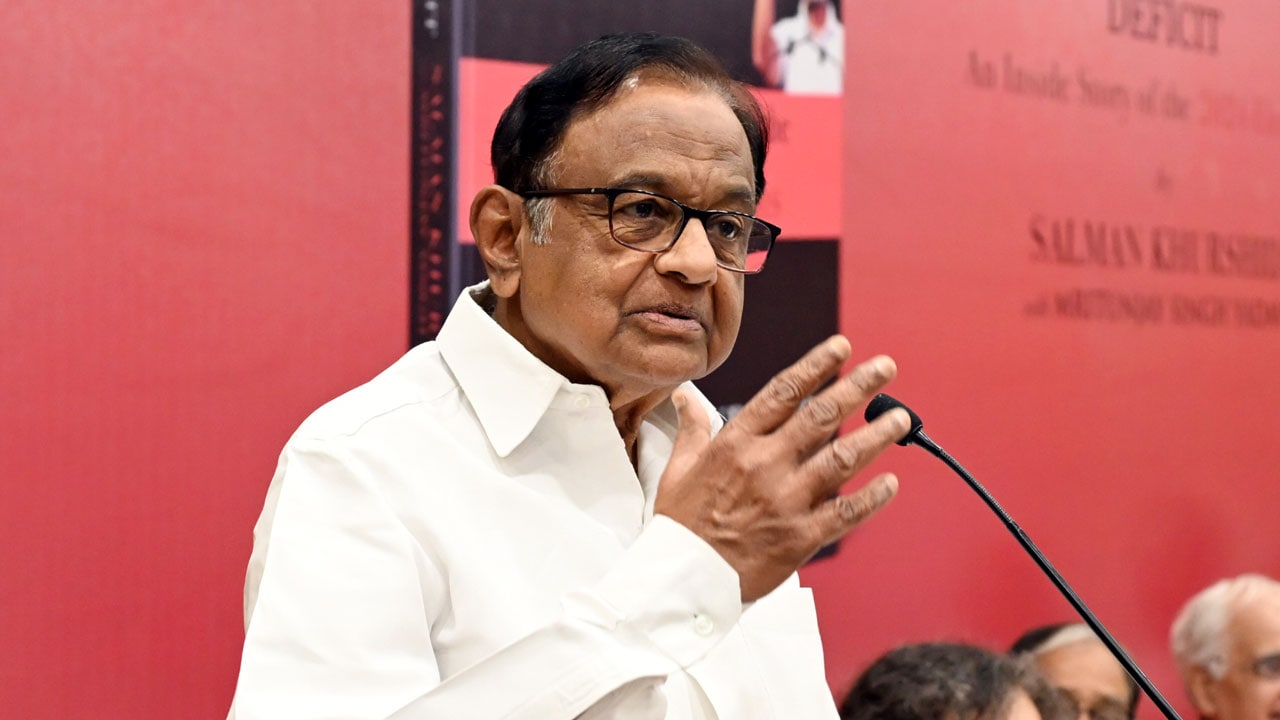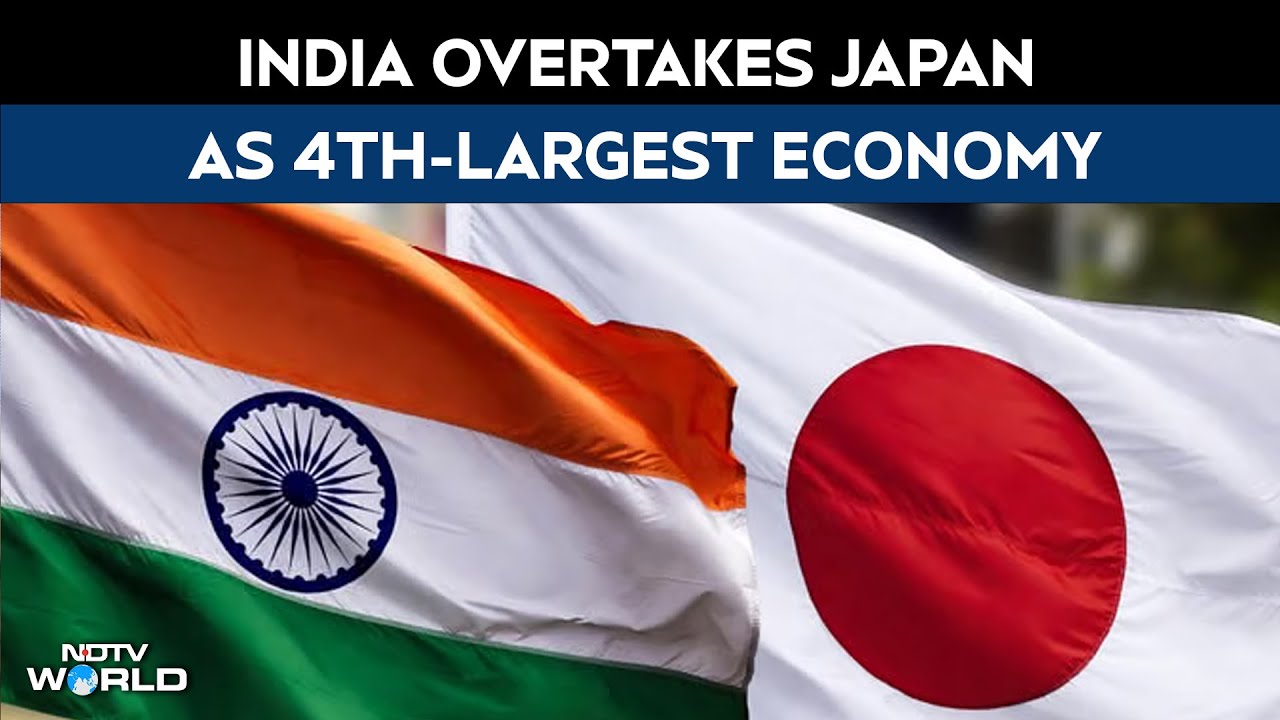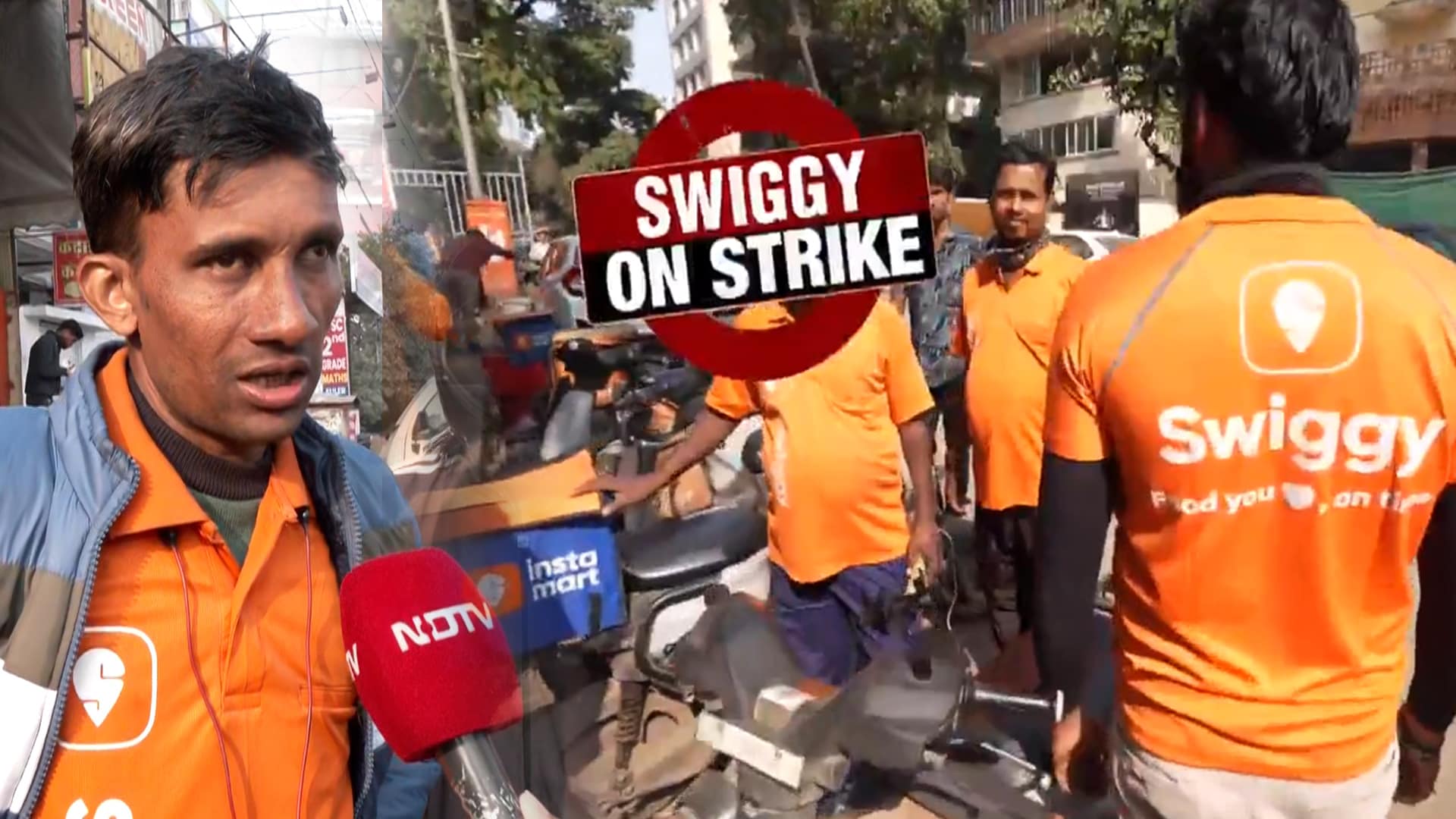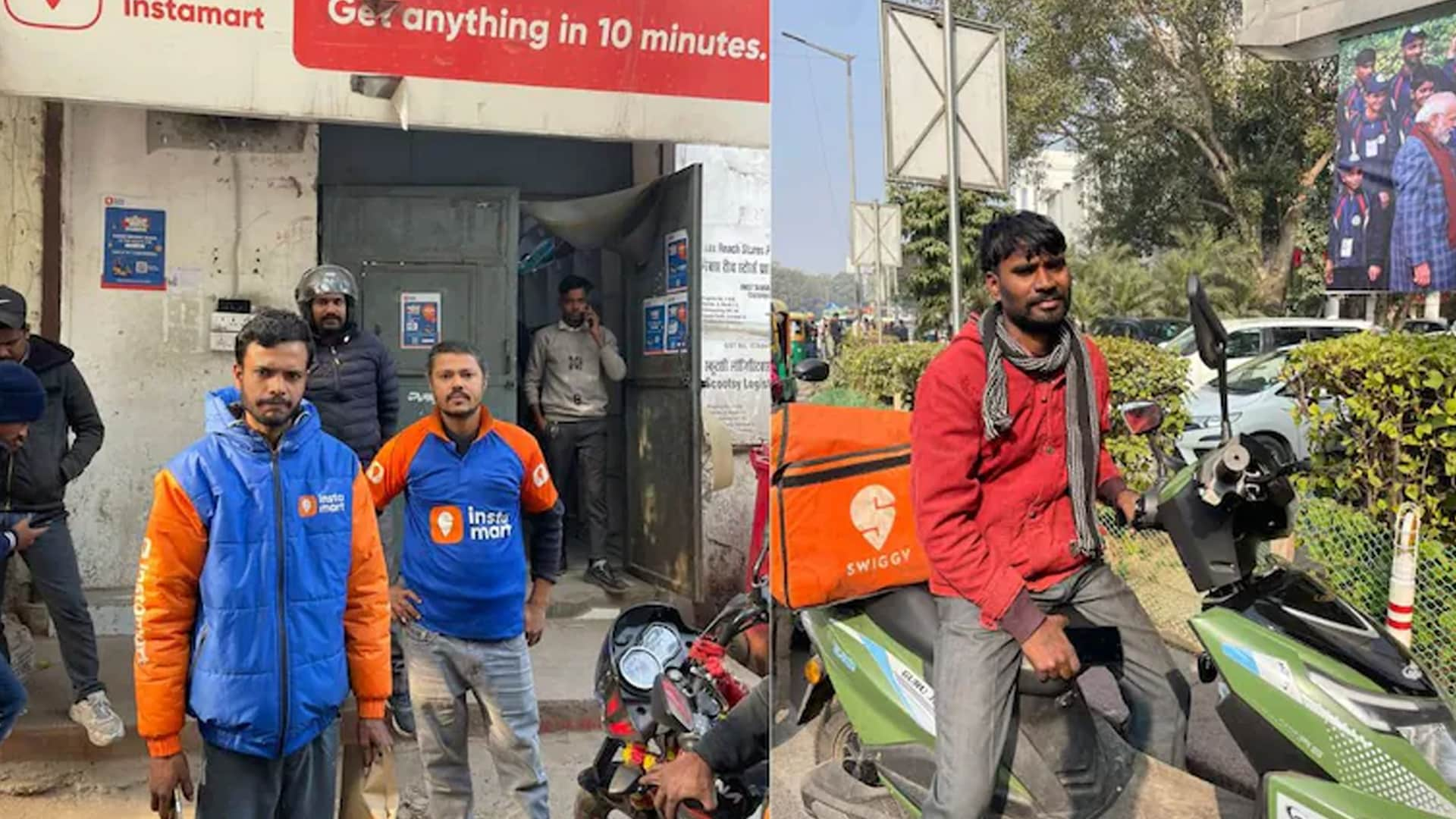Prannoy Roy's Townhall With Amartya Sen On Economy, Farm Laws
Prannoy Roy discusses the economy and farm laws with Professor Amartya Sen in the fourth and the last of this series of Townhalls. "I tend to see development as freedom. I have even written a book called that, 'Development as Freedom'. It's a freedom centred view of success," Professor Sen says.
Here is the full transcript of the NDTV interview with Professor Amartya Sen:
NDTV: Hello and welcome once again to this series of four Townhalls, in which we listen to and we all learn from great minds on what can India expect now, after the Pandemic. This is the fourth and the last of this series of Townhalls, and it is a very special one too. We are really lucky to have with us Professor Amartya Sen. In fact, this half an hour is an amalgamation of excerpts from two one-on-one short chats with Professor Sen. Professor Sen, thank you very, very much for joining us and sparing the time. I really know how hard you're working. But you really do set a bad example for all us Bengalis, working so hard. That's just not right.
Prof Amartya Sen: Not sure I set any example. But I am delighted you say that.
NDTV: So, you work till four o'clock every morning and you're about to start again.
Prof Amartya Sen: As they say in Bengal, I could see you at four o'clock at night, but not four o'clock in the morning.
NDTV: That's a good one. I must remember that. So, shall we start, are you ready?
Prof Amartya Sen: Ready to face the NDTV, yes.
NDTV: So, you've been following the interaction between America and India closely. You're in America right now. And we've all seen a huge change in America. The Trump era, that sort of nightmare is over and Biden is in, so democracy really matters and is effective in America. How will this change the effect it has on India? Will this greater return to democracy in America, will there also be a change in America's attitude to India as well?
Prof Amartya Sen:Well, there are many connections. And one of them is that the skepticism of democracy in America, that was very strong under the previous regime, was just the wrong kind of encouragement in India. The fact that America was setting a very bad example, so, there were lots of things going on where America, instead of being the shining example on the Hill, as they say, ended up being exactly the opposite.
NDTV: Yes, a complete turnaround for the American people. Will there be other changes too? For instance, looking ahead at the economy over the next 12 months, will the US and the global economy bounce back, is the pandemic really completely behind us?
Prof Amartya Sen: I think the Covid is going to be more of a problem than we first thought. Particularly because of the quick variations that have been emerging in South Africa, and the UK, and so on. So, it's not over yet. And I don't think they have really found a very good way of dealing with it. I was quite worried about the European economy. And quite happy, a lot happier, that the Italian economy now, in the hands of the new Prime Minister, will be, I think, in better shape. The British economy is in doldrums still, I think. They have played their card quite well recently, on the COVID. But I think they made a monumental error in getting, having Brexit.
NDTV: There seems to be a worry amongst the authorities in India that the democratic world of the West is increasingly attacking India, targeting India they say, claiming India's democracy is under threat. Why is that happening?
Prof Amartya Sen: You see the odd thing is that, I know that the government is very concerned whether India is being defamed, and someone doing some little, odd experiment like tool kit is immediately shown to be defaming India. The people are not sitting there, ready to defame India. India has got away with a lot of violations of standard norms of democratic behaviour. And there is a basic intention in trying to give India, in some ways, almost more than its due. And whether or not they're critical of it, we go around grumbling, saying, Oh, they are being critical of it. Everyone is against India. That is paranoia. That is not any kind of intelligent political thinking.
NDTV: But we in India have been a democracy for over 70 years. Can we take democracy in India for granted, that it is here to stay forever?
Prof Amartya Sen: India, of course, historically we have had a democratic history going back. Ashoka was concerned with people being consulted. Akbar wanted, right down at the end of the 16th century, how we might be able to govern through consultation. So, there is a history in India, to, you see that is one of my problems here, as I face my own country, in a very patriotic way, nationalist in some ways, in some ways. The Indian situation however, this is my country, I am an Indian. I may teach in America, but I'm not an American. I am definitely a full-blooded Indian. And for me I want that to be changed. It's fairly important to recognize we're not talking about any country which has strayed into democracy. We're talking about the country, India, which was the first country to have a democratic system outside the Western world. We had adult franchise, everyone had the vote. We could deal with disagreements in a much more civilised way. And that's how the world, after the second world war, opened up and India really was a shining place. Where is it now? Not only that, in the list of human rights and so on, India is pretty low. But also, all of the main things that we had, no one is imprisoned without there being a judicial process in which the person is convicted, that is gone. And that requires me to see what's happened to India.
NDTV: You say India's a shining place. Yet you seem deeply concerned. How is all this affecting you and your greater family, personally? You have said in the past that your family was greatly invested in the struggle for freedom from British rule.
Prof Amartya Sen: I grew up as a schoolboy in British India. We knew that the main thing we had to do, once the schooling was finished, was to try to get rid of the Colonial rule. Among wrong things in the Colonial rule were all my kind of able-bodied relations, like my uncles, were in prison. They were in prison under preventive detention. Not because they had done anything wrong, but left free, they could do something wrong. So that was the situation. Then we were going to change it. And we went on telling ourselves that once we gained independence, that would be finished and we would not have this kind of monstrosity. But then we did get independence. In a small way Congress itself did not call for eliminating the imperial relics, which they should have done, which they didn't. But in recent years, the situation has become much, much worse. You have the various UAPA, which are, again, like the colonials, namely not because you had done anything wrong, but you could. The government could call someone a terrorist, and you have a hell of a time trying to prove that you are not. And we have lost that. That is our heritage and that heritage, strengthened by contributions of Gandhiji's actions and Rabindranath Tagore's poetry and writings and many other leaders, was a very strong one. And we have to recover that.
NDTV: Yes, you have written about the importance, not just of economic development, but you've also written about freedom as an integral part of development of any country, freedom.
Prof Amartya Sen: I tend to see development as freedom. I have even written a book called that, 'Development as Freedom'. It's a freedom centered view of success. We want to conquer famine, we want to conquer hunger, we want everyone to be literate. We want the higher education to be at a higher level, not at the stage where not a single institution of higher education in India falls in the top category. We want to change all that, but underlying that there's also a very deep commitment that individuals should be able to live in freedom. And there isn't much point in having a development that ignores this basic characteristic of freedom.
NDTV: So, when you say that freedom and economic development are crucially interlinked, how closely are your personal politics and your personal views intertwined with your writings on economics, on politics and on India in particular?
Prof Amartya Sen: We need democracy because democracy is important. It is really important. We have to recognize that the individual freedom of speech, individual freedom of action, these are really important things. And these are not, as it's sometimes made out, left and right issues. I happen to have, in politics, many views which would be described as left-wing views. But even if I didn't have them, if I had more right-wing, pro-market views, if I thought that the market never makes a mistake, even then democracy would have been very important.
NDTV: Are you optimistic about the future of India?
Prof Amartya Sen: I am hopeful about the future because I have seen situations of terrifying iniquity move towards a better situation. After all we used to have famines, which are gone now. There's a lot of undernourishment I hope that will go too. Lot of lack of medical care, I hope that will go too. So, we have seen these successes, we have seen failures too. But which way we go depends on what we do. How much attention we pay. And I have very great faith and confidence in the young. They're strong. And some of them are in jail, like Kanhaiya, or Umar Khalid or Shehla. Or Disha Ravi and so on. And I think they are people who are ready to fight and who will give, make a lot of sacrifice for that. And I mentioned just a few names. It came up in the context of UAPA, but the country is full of people who are ready to do something for India. So that's really where my hope is. And ultimately, by the way, I think the politics of India at the moment is in such a confounded state that to look for young people is not crazy. I think it is very important to see what the young people are saying and how they are saying it.
NDTV: From what you've just said, you clearly have great faith in the youth of our country. Once again do you see inherent in them, a kind of spirit of democracy and that we have a brave, younger generation ahead, looking after India for us?
Prof Amartya Sen: When you see a situation when people are arrested without being called a terrorist, but there's very little opportunity for the person to show that he or she is not a terrorist. How we deal with it, I don't know. I see that one of the oddities in India, that people who are barely in their teen age get arrested on grounds of doing very great turmoil and terroristic harm. I think, what's her name, I think Disha Ravi who was recently arrested? And very little evidence of having done anything. And then she says, and I think I applaud that, saying well if keeping me in prison is the way Indians are given the right to have freedom, then so be it. That's a noble statement and statements of that kind have been made by people who had been in the wrong end of Indian executive punishment, tolerated by the judiciary, not always, sometimes the judiciary has acted well, but often tolerated by the judiciary in a way that needs changing.
NDTV: You mention the youth in India supporting the farmers protests. Moving on to the farmers' agitation that has really taken India by storm and in fact is being noticed by the international community as well. The farmers of India in their daily existence face probably the greatest uncertainty, the risk and volatility in prices, the good monsoon, a bad monsoon and so many other uncertainties that other sectors and other countries do not have to the same extent. What should a government do to reduce the risks inherent in Indian farming?
Prof Amartya Sen: The farmers have anxiety of the kind that is really important because Indian agriculture may be a success in many ways, and yet, there are dangers, there are uncertainties, their insecurities and so on. And the role of a state is quite important to settle these insecurities. And in many different ways, the state has a role whether it is in Europe or in America, or even in Africa, by and large states have recognized that it just can't go away and assume everything will go fine, in a way that is being assumed in India at this moment. And that's not good planning. Good planning is not only to get the best scenario right, but also to get any departures from it, to be well taken care of and people being given the confidence, that if something goes wrong, they will not have to kill themselves, and get into a situation of impossibility that has happened in India in the past and which we ought to avoid. So I think, I can't really understand why the government has to be so insensitive in not understanding the nature of why, about insecurity, which is present the world over in every economic sector, but agriculture in particular.
NDTV: So just to be clear, do you believe that the way forward for rapid agricultural development in India is for the government to reduce the huge uncertainties, the volatility and the insecurities associated with farming in this country?
Prof Amartya Sen: Yes, I think the farmers struggle has to be viewed in terms of the security that the farmers had. That is, they feel that they can actually be in a secure state, when the government has a role of guaranteeing certain things. And this has indeed been the case in many areas of economic planning, namely to, not go against a market economy, which I'm not against, but provide a kind of solid security, which is important enough. To eliminate that and just leave it to the market forces doesn't do the market economy very much good either. Every successful market economy in the world has been based on being supported by the government to make sure that people are not prevented from taking risks. And taking really important steps that they can take for fear of coming out in a state of hunger. And so we have to read the agricultural protest that is going on, in this light. India's Green Revolution has taken place with security rather than without.
NDTV: So many say that the 3 new bills are market-oriented and that anyone against them is just anti a market economy.
Prof Amartya Sen: Sometimes people accuse me of being against the market. But I have been facing the market for a very long time, and I take the same view, as Adam Smith did, which is to say that in order to succeed, you have to have a healthy market. But you have to have a healthy state, which looks after the peoples' interests. By the way the farmers' thing is to give priority to a healthy market, but completely ignore the weight of the state in guaranteeing and eliminating uncertainty. So, I think it's that combination, which Adam Smith put forward in 1776, on which I was lecturing last year, very, very central.
NDTV: When you say the state or a government must look after the people's interest, today our farmers are being accused of not wanting change because they are only worried about themselves, they're worrying about their self-interest.
Prof Amartya Sen: So, to worry about one's future is not a sin. And if you do that, and suddenly out of nowhere, you're being blamed, not as the farmer, but somehow underneath you're supposed to carry the flag of some dissident movement, like Khalistan or something like that. And, people have been astonished suddenly to find that they are Khalistani foot soldiers when they had no connection with it at all.
Now there's been a number of people who are ready to fight this, take this on. And that's the hope, because the government might think that thumping some heads would get them what they want, namely a silent country where no one criticises the government. But that's not democracy, and that's not achievable by the kind of overstretching of the executive role in things like UAPA and so on.
NDTV: I totally agree with you, this name calling and accusations without evidence are, like as you say, thumping heads. We are all actually very proud of our farmers, who, like along with our Jawans, are ensuring the livelihood of the people of India. Let's move on to the other extreme of what's happening. India's stock market is booming. India's GDP has dropped by 7.7% to 8%, global GDP has dropped, but the stock markets in India and the world have shot up. So how are these two contradictory trends explained? What's responsible? And really what does the stock market say about any economy then?
Prof Amartya Sen: It doesn't say very much. But what it does say is something about the value of stocks and the value of stocks depends on a variety of considerations. It doesn't depend on how productive the economy is, or how much individuals are earning as a wage or as an economic transaction benefit. It's mainly concerned with how the value of capital, compared with the value of the realization, if you were to sell the product, and it's a relative magnitude, so the stock market could easily go up even when the economic performance for the economy as a whole is pretty bad. This is not the first time it has happened.
NDTV: And now I am going to ask you a really unfair question, as our economy starts doing well again, what's going to happen to the stock market, will share prices rise or will share prices fall? As I said, very unfair question.
Prof Amartya Sen: Well, I think the stock market has many elements, and one of them, which Arthur Pigou particularly emphasized, that the state of psychology is very important for that. And if they succeed in convincing people that everything is going up and up, and the value of the assets if shown, will have kept its value up. Otherwise, I think the stock markets can go up without too much difficulty.
I think the stock market is not a very good way of judging things. On the other hand, a lot of investment is geared to the stock market, certainly. So that an intelligent economist has to look at the stock market too, not as something valuable in itself, but as something which has an instrumental role in the performance of the economy. So, you can't just say, kick stock markets. You have to see how you can integrate that in a capitalist economy. And I don't think the world is going to move very far away from a capitalist economy in the near future.
NDTV: And now from the sublime to the ridiculous. Have you invested in cryptocurrencies like Bitcoin, and if not, why not?
Prof Amartya Sen: I haven't touched it. You see, I want to do things that are both fun and honest. As a general rule, everything I do must have that rule. I don't take that view. On the other hand, something which clearly capitalizes on dishonesty, and which is basically a confidence trick is, I don't really see, unless I must be in a very bad shape, why I have to go into it. I'm not in such a bad shape.
NDTV: In this context we've heard that you are going to teach an amazingly relevant course next year, it's on Truth. And I say, it's so relevant today as we live in a world where there's trust-deficit and truth-deficit, both at their peak. It's never been so bad.
Prof Amartya Sen: We are planning to do a course next year on the truth. And the plan is, because I'm increasingly convinced that a lot of the difficulty in the world arises from people's perception of truth being so limited. Wittgenstein once said to a friend, Wittgenstein, the great philosopher, that I wish I could be a better person by being more intelligent. Being intelligent has not much to do with being a better person. But she thought that a lot of our failure, our inability to do the right thing arises from our intellectual failure and, in particular, not understanding the truth. And there is a big need for understanding the true nature of the Indian economy and the society and the polity, in the context of the differences and debates that we happen to encounter in the world.
NDTV: Professor Amartya Sen, really thank you so much for spending this time with us. I just don't know, I'm not clear whether I have spoken to you late at night, or is it, early morning, 4 am, 4 am at night, I'm still trying to figure that out. Very late at night, is it?
Prof Amartya Sen: Yes very. Since I worked till 4:00 am in the morning.
NDTV: I hope we've not been unfair on you timing wise? Please forgive us. I hope you're fine?
Prof Amartya Sen: Yes. If you don't count sleep.
NDTV: Thank you very much once again for being with us and spending so much time. Please don't work so hard. As I said you're really setting a very bad example and you're really making us all feel terribly guilty.
Prof Amartya Sen: Oh, thank you. And thank you for giving me an opportunity to be proud of my country and express some hope and optimism, which I do have.
NDTV: Thank you, thank you very much. Bye for now.
Prof Amartya Sen: Bye.
Here is the full transcript of the NDTV interview with Professor Amartya Sen:
NDTV: Hello and welcome once again to this series of four Townhalls, in which we listen to and we all learn from great minds on what can India expect now, after the Pandemic. This is the fourth and the last of this series of Townhalls, and it is a very special one too. We are really lucky to have with us Professor Amartya Sen. In fact, this half an hour is an amalgamation of excerpts from two one-on-one short chats with Professor Sen. Professor Sen, thank you very, very much for joining us and sparing the time. I really know how hard you're working. But you really do set a bad example for all us Bengalis, working so hard. That's just not right.
Prof Amartya Sen: Not sure I set any example. But I am delighted you say that.
NDTV: So, you work till four o'clock every morning and you're about to start again.
Prof Amartya Sen: As they say in Bengal, I could see you at four o'clock at night, but not four o'clock in the morning.
NDTV: That's a good one. I must remember that. So, shall we start, are you ready?
Prof Amartya Sen: Ready to face the NDTV, yes.
NDTV: So, you've been following the interaction between America and India closely. You're in America right now. And we've all seen a huge change in America. The Trump era, that sort of nightmare is over and Biden is in, so democracy really matters and is effective in America. How will this change the effect it has on India? Will this greater return to democracy in America, will there also be a change in America's attitude to India as well?
Prof Amartya Sen:Well, there are many connections. And one of them is that the skepticism of democracy in America, that was very strong under the previous regime, was just the wrong kind of encouragement in India. The fact that America was setting a very bad example, so, there were lots of things going on where America, instead of being the shining example on the Hill, as they say, ended up being exactly the opposite.
NDTV: Yes, a complete turnaround for the American people. Will there be other changes too? For instance, looking ahead at the economy over the next 12 months, will the US and the global economy bounce back, is the pandemic really completely behind us?
Prof Amartya Sen: I think the Covid is going to be more of a problem than we first thought. Particularly because of the quick variations that have been emerging in South Africa, and the UK, and so on. So, it's not over yet. And I don't think they have really found a very good way of dealing with it. I was quite worried about the European economy. And quite happy, a lot happier, that the Italian economy now, in the hands of the new Prime Minister, will be, I think, in better shape. The British economy is in doldrums still, I think. They have played their card quite well recently, on the COVID. But I think they made a monumental error in getting, having Brexit.
NDTV: There seems to be a worry amongst the authorities in India that the democratic world of the West is increasingly attacking India, targeting India they say, claiming India's democracy is under threat. Why is that happening?
Prof Amartya Sen: You see the odd thing is that, I know that the government is very concerned whether India is being defamed, and someone doing some little, odd experiment like tool kit is immediately shown to be defaming India. The people are not sitting there, ready to defame India. India has got away with a lot of violations of standard norms of democratic behaviour. And there is a basic intention in trying to give India, in some ways, almost more than its due. And whether or not they're critical of it, we go around grumbling, saying, Oh, they are being critical of it. Everyone is against India. That is paranoia. That is not any kind of intelligent political thinking.
NDTV: But we in India have been a democracy for over 70 years. Can we take democracy in India for granted, that it is here to stay forever?
Prof Amartya Sen: India, of course, historically we have had a democratic history going back. Ashoka was concerned with people being consulted. Akbar wanted, right down at the end of the 16th century, how we might be able to govern through consultation. So, there is a history in India, to, you see that is one of my problems here, as I face my own country, in a very patriotic way, nationalist in some ways, in some ways. The Indian situation however, this is my country, I am an Indian. I may teach in America, but I'm not an American. I am definitely a full-blooded Indian. And for me I want that to be changed. It's fairly important to recognize we're not talking about any country which has strayed into democracy. We're talking about the country, India, which was the first country to have a democratic system outside the Western world. We had adult franchise, everyone had the vote. We could deal with disagreements in a much more civilised way. And that's how the world, after the second world war, opened up and India really was a shining place. Where is it now? Not only that, in the list of human rights and so on, India is pretty low. But also, all of the main things that we had, no one is imprisoned without there being a judicial process in which the person is convicted, that is gone. And that requires me to see what's happened to India.
NDTV: You say India's a shining place. Yet you seem deeply concerned. How is all this affecting you and your greater family, personally? You have said in the past that your family was greatly invested in the struggle for freedom from British rule.
Prof Amartya Sen: I grew up as a schoolboy in British India. We knew that the main thing we had to do, once the schooling was finished, was to try to get rid of the Colonial rule. Among wrong things in the Colonial rule were all my kind of able-bodied relations, like my uncles, were in prison. They were in prison under preventive detention. Not because they had done anything wrong, but left free, they could do something wrong. So that was the situation. Then we were going to change it. And we went on telling ourselves that once we gained independence, that would be finished and we would not have this kind of monstrosity. But then we did get independence. In a small way Congress itself did not call for eliminating the imperial relics, which they should have done, which they didn't. But in recent years, the situation has become much, much worse. You have the various UAPA, which are, again, like the colonials, namely not because you had done anything wrong, but you could. The government could call someone a terrorist, and you have a hell of a time trying to prove that you are not. And we have lost that. That is our heritage and that heritage, strengthened by contributions of Gandhiji's actions and Rabindranath Tagore's poetry and writings and many other leaders, was a very strong one. And we have to recover that.
NDTV: Yes, you have written about the importance, not just of economic development, but you've also written about freedom as an integral part of development of any country, freedom.
Prof Amartya Sen: I tend to see development as freedom. I have even written a book called that, 'Development as Freedom'. It's a freedom centered view of success. We want to conquer famine, we want to conquer hunger, we want everyone to be literate. We want the higher education to be at a higher level, not at the stage where not a single institution of higher education in India falls in the top category. We want to change all that, but underlying that there's also a very deep commitment that individuals should be able to live in freedom. And there isn't much point in having a development that ignores this basic characteristic of freedom.
NDTV: So, when you say that freedom and economic development are crucially interlinked, how closely are your personal politics and your personal views intertwined with your writings on economics, on politics and on India in particular?
Prof Amartya Sen: We need democracy because democracy is important. It is really important. We have to recognize that the individual freedom of speech, individual freedom of action, these are really important things. And these are not, as it's sometimes made out, left and right issues. I happen to have, in politics, many views which would be described as left-wing views. But even if I didn't have them, if I had more right-wing, pro-market views, if I thought that the market never makes a mistake, even then democracy would have been very important.
NDTV: Are you optimistic about the future of India?
Prof Amartya Sen: I am hopeful about the future because I have seen situations of terrifying iniquity move towards a better situation. After all we used to have famines, which are gone now. There's a lot of undernourishment I hope that will go too. Lot of lack of medical care, I hope that will go too. So, we have seen these successes, we have seen failures too. But which way we go depends on what we do. How much attention we pay. And I have very great faith and confidence in the young. They're strong. And some of them are in jail, like Kanhaiya, or Umar Khalid or Shehla. Or Disha Ravi and so on. And I think they are people who are ready to fight and who will give, make a lot of sacrifice for that. And I mentioned just a few names. It came up in the context of UAPA, but the country is full of people who are ready to do something for India. So that's really where my hope is. And ultimately, by the way, I think the politics of India at the moment is in such a confounded state that to look for young people is not crazy. I think it is very important to see what the young people are saying and how they are saying it.
NDTV: From what you've just said, you clearly have great faith in the youth of our country. Once again do you see inherent in them, a kind of spirit of democracy and that we have a brave, younger generation ahead, looking after India for us?
Prof Amartya Sen: When you see a situation when people are arrested without being called a terrorist, but there's very little opportunity for the person to show that he or she is not a terrorist. How we deal with it, I don't know. I see that one of the oddities in India, that people who are barely in their teen age get arrested on grounds of doing very great turmoil and terroristic harm. I think, what's her name, I think Disha Ravi who was recently arrested? And very little evidence of having done anything. And then she says, and I think I applaud that, saying well if keeping me in prison is the way Indians are given the right to have freedom, then so be it. That's a noble statement and statements of that kind have been made by people who had been in the wrong end of Indian executive punishment, tolerated by the judiciary, not always, sometimes the judiciary has acted well, but often tolerated by the judiciary in a way that needs changing.
NDTV: You mention the youth in India supporting the farmers protests. Moving on to the farmers' agitation that has really taken India by storm and in fact is being noticed by the international community as well. The farmers of India in their daily existence face probably the greatest uncertainty, the risk and volatility in prices, the good monsoon, a bad monsoon and so many other uncertainties that other sectors and other countries do not have to the same extent. What should a government do to reduce the risks inherent in Indian farming?
Prof Amartya Sen: The farmers have anxiety of the kind that is really important because Indian agriculture may be a success in many ways, and yet, there are dangers, there are uncertainties, their insecurities and so on. And the role of a state is quite important to settle these insecurities. And in many different ways, the state has a role whether it is in Europe or in America, or even in Africa, by and large states have recognized that it just can't go away and assume everything will go fine, in a way that is being assumed in India at this moment. And that's not good planning. Good planning is not only to get the best scenario right, but also to get any departures from it, to be well taken care of and people being given the confidence, that if something goes wrong, they will not have to kill themselves, and get into a situation of impossibility that has happened in India in the past and which we ought to avoid. So I think, I can't really understand why the government has to be so insensitive in not understanding the nature of why, about insecurity, which is present the world over in every economic sector, but agriculture in particular.
NDTV: So just to be clear, do you believe that the way forward for rapid agricultural development in India is for the government to reduce the huge uncertainties, the volatility and the insecurities associated with farming in this country?
Prof Amartya Sen: Yes, I think the farmers struggle has to be viewed in terms of the security that the farmers had. That is, they feel that they can actually be in a secure state, when the government has a role of guaranteeing certain things. And this has indeed been the case in many areas of economic planning, namely to, not go against a market economy, which I'm not against, but provide a kind of solid security, which is important enough. To eliminate that and just leave it to the market forces doesn't do the market economy very much good either. Every successful market economy in the world has been based on being supported by the government to make sure that people are not prevented from taking risks. And taking really important steps that they can take for fear of coming out in a state of hunger. And so we have to read the agricultural protest that is going on, in this light. India's Green Revolution has taken place with security rather than without.
NDTV: So many say that the 3 new bills are market-oriented and that anyone against them is just anti a market economy.
Prof Amartya Sen: Sometimes people accuse me of being against the market. But I have been facing the market for a very long time, and I take the same view, as Adam Smith did, which is to say that in order to succeed, you have to have a healthy market. But you have to have a healthy state, which looks after the peoples' interests. By the way the farmers' thing is to give priority to a healthy market, but completely ignore the weight of the state in guaranteeing and eliminating uncertainty. So, I think it's that combination, which Adam Smith put forward in 1776, on which I was lecturing last year, very, very central.
NDTV: When you say the state or a government must look after the people's interest, today our farmers are being accused of not wanting change because they are only worried about themselves, they're worrying about their self-interest.
Prof Amartya Sen: So, to worry about one's future is not a sin. And if you do that, and suddenly out of nowhere, you're being blamed, not as the farmer, but somehow underneath you're supposed to carry the flag of some dissident movement, like Khalistan or something like that. And, people have been astonished suddenly to find that they are Khalistani foot soldiers when they had no connection with it at all.
Now there's been a number of people who are ready to fight this, take this on. And that's the hope, because the government might think that thumping some heads would get them what they want, namely a silent country where no one criticises the government. But that's not democracy, and that's not achievable by the kind of overstretching of the executive role in things like UAPA and so on.
NDTV: I totally agree with you, this name calling and accusations without evidence are, like as you say, thumping heads. We are all actually very proud of our farmers, who, like along with our Jawans, are ensuring the livelihood of the people of India. Let's move on to the other extreme of what's happening. India's stock market is booming. India's GDP has dropped by 7.7% to 8%, global GDP has dropped, but the stock markets in India and the world have shot up. So how are these two contradictory trends explained? What's responsible? And really what does the stock market say about any economy then?
Prof Amartya Sen: It doesn't say very much. But what it does say is something about the value of stocks and the value of stocks depends on a variety of considerations. It doesn't depend on how productive the economy is, or how much individuals are earning as a wage or as an economic transaction benefit. It's mainly concerned with how the value of capital, compared with the value of the realization, if you were to sell the product, and it's a relative magnitude, so the stock market could easily go up even when the economic performance for the economy as a whole is pretty bad. This is not the first time it has happened.
NDTV: And now I am going to ask you a really unfair question, as our economy starts doing well again, what's going to happen to the stock market, will share prices rise or will share prices fall? As I said, very unfair question.
Prof Amartya Sen: Well, I think the stock market has many elements, and one of them, which Arthur Pigou particularly emphasized, that the state of psychology is very important for that. And if they succeed in convincing people that everything is going up and up, and the value of the assets if shown, will have kept its value up. Otherwise, I think the stock markets can go up without too much difficulty.
I think the stock market is not a very good way of judging things. On the other hand, a lot of investment is geared to the stock market, certainly. So that an intelligent economist has to look at the stock market too, not as something valuable in itself, but as something which has an instrumental role in the performance of the economy. So, you can't just say, kick stock markets. You have to see how you can integrate that in a capitalist economy. And I don't think the world is going to move very far away from a capitalist economy in the near future.
NDTV: And now from the sublime to the ridiculous. Have you invested in cryptocurrencies like Bitcoin, and if not, why not?
Prof Amartya Sen: I haven't touched it. You see, I want to do things that are both fun and honest. As a general rule, everything I do must have that rule. I don't take that view. On the other hand, something which clearly capitalizes on dishonesty, and which is basically a confidence trick is, I don't really see, unless I must be in a very bad shape, why I have to go into it. I'm not in such a bad shape.
NDTV: In this context we've heard that you are going to teach an amazingly relevant course next year, it's on Truth. And I say, it's so relevant today as we live in a world where there's trust-deficit and truth-deficit, both at their peak. It's never been so bad.
Prof Amartya Sen: We are planning to do a course next year on the truth. And the plan is, because I'm increasingly convinced that a lot of the difficulty in the world arises from people's perception of truth being so limited. Wittgenstein once said to a friend, Wittgenstein, the great philosopher, that I wish I could be a better person by being more intelligent. Being intelligent has not much to do with being a better person. But she thought that a lot of our failure, our inability to do the right thing arises from our intellectual failure and, in particular, not understanding the truth. And there is a big need for understanding the true nature of the Indian economy and the society and the polity, in the context of the differences and debates that we happen to encounter in the world.
NDTV: Professor Amartya Sen, really thank you so much for spending this time with us. I just don't know, I'm not clear whether I have spoken to you late at night, or is it, early morning, 4 am, 4 am at night, I'm still trying to figure that out. Very late at night, is it?
Prof Amartya Sen: Yes very. Since I worked till 4:00 am in the morning.
NDTV: I hope we've not been unfair on you timing wise? Please forgive us. I hope you're fine?
Prof Amartya Sen: Yes. If you don't count sleep.
NDTV: Thank you very much once again for being with us and spending so much time. Please don't work so hard. As I said you're really setting a very bad example and you're really making us all feel terribly guilty.
Prof Amartya Sen: Oh, thank you. And thank you for giving me an opportunity to be proud of my country and express some hope and optimism, which I do have.
NDTV: Thank you, thank you very much. Bye for now.
Prof Amartya Sen: Bye.
